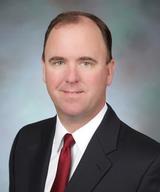Editor: Ms. Gunawardhana, please tell our readers about your background at the FDA.
Gunawardhana: I started my career at the FDA in 2003, as a regulatory counsel in the Center for Devices and Radiological Health (CDRH) in the Division of Bioresearch Monitoring within the Office of Compliance. While there I became a case expert as well as the Center’s integrity officer, which allowed me to work on many high-profile cases. Early in 2011, just after the enactment of the Food Safety Modernization Act (FSMA), I moved over to the Center for Food Safety and Applied Nutrition as a supervisory regulatory counsel in order to work on this sweeping legislation at the ground level.
Editor: Would you like to tell us about any interesting cases you worked on while you were there?
Gunawardhana: Because I worked primarily in the issuance of enforcement actions, I worked with companies who found themselves in receipt of a warning letter or even an Application Integrity Policy letter, better known as an AIP. AIPs indicate that a company has been documented with severe violations of the governing regulations and that review of the medical device will cease until such time as the company comes back into compliance by implementing a corrective action plan. I frequently worked on cases that involved Class III devices, where the implantation and explantation of the device can be risky; violations often occurred during trials in which many human subjects were put at risk. One case I was involved with made the news because it dealt with a very vulnerable subject population – severely burned children. I worked very closely with the university conducting the study as well as the sponsors, the Institutional Review Board and the clinical investigators to come up with a good course of corrective action that protected all stakeholders, especially the children.
Editor: Why did you decide to move to private practice after nearly a decade at FDA?
Gunawardhana: Wiley Rein offered me a great opportunity to work with a group of well-known leaders in the FDA field, namely Jim and of course Bert Rein. It was also an exceptional opportunity that afforded me the ability to build my own practice and to be more entrepreneurial. Furthermore, this position enables me to use my FDA experience to assist companies with compliance issues before they receive regulatory correspondence from the agency.
Editor: Mr. Czaban, tell us about your practice at Wiley Rein as head of the Food & Drug Law Practice, advising on a variety of legal, regulatory and policy issues in the pharmaceutical industry.
Czaban: There’s no end to the variety of work that FDA-regulated companies need help with, from product applications – which have become increasingly expensive and complex over the years as more emphasis is put on proving safety and efficacy – to compliance with burgeoning regulatory demands. Add to that enforcement actions and threat of enforcement actions by the FDA itself in the context of pharmaceuticals and medical devices. Meanwhile, in the marketing context, False Claims Act violations can generate eye-popping multi-hundred-million-dollar settlements with the government. And, every type of corporate transaction involving FDA-regulated companies raises legal and regulatory issues for which we assist the companies and/or the bankers.
Our clients include pharmaceutical, food, biotechnology and medical device companies, and we advise them on the whole range of those issues. We’re very excited about Sonali joining our practice. She brings the kind of deep insider experience that will round out and strengthen our medical device and food and drug law practice.
Editor: Could you tell us about a recent case you’ve worked on?
Czaban: As you might imagine, most of our projects are highly confidential to the extent they involve product applications. However, I can tell your readers about one area of interest to a number of our clients: so-called pharmacy compounding. These companies, entities and individuals have a state-issued pharmacy license that they argue allows them to produce drug products without an FDA-approved new drug application. Compounders often claim to be traditional lawful pharmacies making specialized products for individual patients, but the reality is that a lot of these companies are operating on a large scale and essentially manufacturing drugs in competition with our clients – pharmaceutical companies that have invested hundreds of millions of dollars to go through the FDA approval process, including clinical trials, before bringing their product to market.
It’s no secret that FDA has very limited resources, and it is a constant challenge for the agency to address literally thousands of companies who may be committing serious violations – including compounding pharmacies - which is unfortunate for our clients. Sadly, we are now seeing multiple tragic deaths from fungal meningitis caused by so-called “compounded” steroid injections. This is exactly the type of unlawful manufacturing we and our clients have been fighting against, but until now FDA has done virtually nothing. Now that people are dying we hope the agency sees the light and steps in to enforce the law.
Editor: Do you think that FDA will be getting any more funding in the years to come?
Gunawardhana: FDA budgets are always tricky, and while I was there, at the end of every fiscal year there always was tremendous pressure on all aspects of the budget, including staff positions. The agency’s budget allocations for the next year were closely aligned with the views of congressional leaders. When certain crises affecting U.S. public health arise – such as a drug recall or an outbreak of foodborne illnesses – occasionally Congress is more willing to allocate more funding.
Czaban: Congress mistakenly believes FDA is financially secure because it receives user fees, however, these fees can cause a perception problem. FDA is extremely reliant on user fees, but these generally can only be received for the application process, so the money can’t be used in the enforcement context.
Editor: What do each of you see as the biggest issues expected to come out of FDA in the next year?
Gunawardhana: The Center for Devices and Radiological Health is currently reexamining their internal regulatory review process for medical devices in order to address issues raised by both FDA staff and the medical device industry regarding the need for a more efficient approach to ensure that safe and effective medical devices reach the market. I anticipate regulatory changes that will greatly affect medical device manufacturers in terms of both their pre-market and post-market medical devices. In the food sector, many rules will be promulgated because of the large sweeping reforms of FSMA. Largely geared to preventative controls, FSMA encompasses issues as diverse as menu labeling, product tracing and transportation, and will affect everyone in the sector, from food manufacturers and producers of all sizes to retail establishments and vending machine manufacturers. Companies will be grappling with these new proposed regulations when they are finalized and when compliance dates are provided.
Czaban: Outside of FSMA in terms of new and interesting developments, the biggest thing for the next several years will be the Biologics Price Competition and Innovation Act, or BPCIA – a lesser-known part of the healthcare law that FDA and industry have invested many years in writing. BPCIA will regulate biosimilars, which are, roughly speaking, the generic versions of biotech products. Biosimilars are not generic in the sense that generic drugs — which are almost identical to their branded counterparts — are because biotech products are derived from living organisms and cannot simply be replicated in a chemistry lab. Originator biotech products require very expensive, very challenging and highly sophisticated processes. BPCIA for the first time allows biosimilar versions of branded biotech products to get FDA approval with less than the full amount of clinical research and testing that is required of the originator product. The law is complex because the products are complex, and biosimilar manufacturers have a lot of work ahead of them, but the thinking is that BPCIA will enable companies to save money on the development of biosimilars and ultimately save patients and government payers money over the long term.
Editor: What happens with the originators in terms of patents?
Czaban: The patent litigation element of the BPCIA is very different from and somewhat more convoluted than the Hatch-Waxman generic drug patent litigation process, and FDA will not be implementing that. Answers will come about case by case in the courts as biosimilar companies start to challenge patents on branded products. Our firm’s patent group is very much attuned to those issues, and we’re looking forward to working on them.
Editor: What is the best insider advice you can give regulated companies about how to deal with the agency if they are accused of violating the FDA regulations?
Gunawardhana: The agency is moving towards greater transparency and has demonstrated increased willingness to meet with regulated industries. While I was at the agency, I observed that companies didn’t necessarily understand the FDA’s motivations or perspectives when they had an issue, which can put them at a real disadvantage. A clear comprehension of FDA’s goals enables companies to recognize areas where they can negotiate and come up with win-win solutions for the FDA and themselves. The staff at CDRH seems especially willing to listen because they recognize they are dealing with very new and novel technologies and must therefore be more flexible in their regulatory approach. I think the best insider advice I can provide is to be open to listening to the agency’s issues as it will provide insight on their perspective, which will allow you to be creative in suggesting solutions.
Editor: Do you see any major changes for FDA based on the outcome of the election?
Czaban: I gave a presentation around this time four years ago, and I had all sorts of bold predictions about post-election changes at FDA, many of which were spot-on, but I’ve also been surprised a little. I and a host of other experts predicted a very heightened and visible focus on enforcement. While that has come true in some areas, especially food safety, in other areas, such as advertising and promotional compliance, there has not been as much enforcement as some in the industry feared. It is widely rumored that Commissioner Hamburg will step down even if President Obama is reelected, and we may then see an even more aggressive enforcement trend. If Mitt Romney is elected, I would expect a slight trend toward more regulatory flexibility with greater emphasis on the need to foster free market innovation in medical science. So, regardless of the outcome, we will likely see a new commissioner set a new and different tone and direction for the agency.
Gunawardhana: Some policies do shift with the election but very gradually, as certain policies are long-ingrained and difficult to change; while I was at the FDA, I did see issues become higher priority based on the administration in power. For example, food safety became a higher priority issue primarily because of food recalls, especially due to the massive recall of both spinach and peanut butter, but I also think that President and Michelle Obama’s concerns about nutrition initiatives helped fuel the passage of FSMA legislation. I believe the FDA appreciates this legislation as it provides more authority to fulfill their mission to protect the nation’s public health.
Published October 17, 2012.




